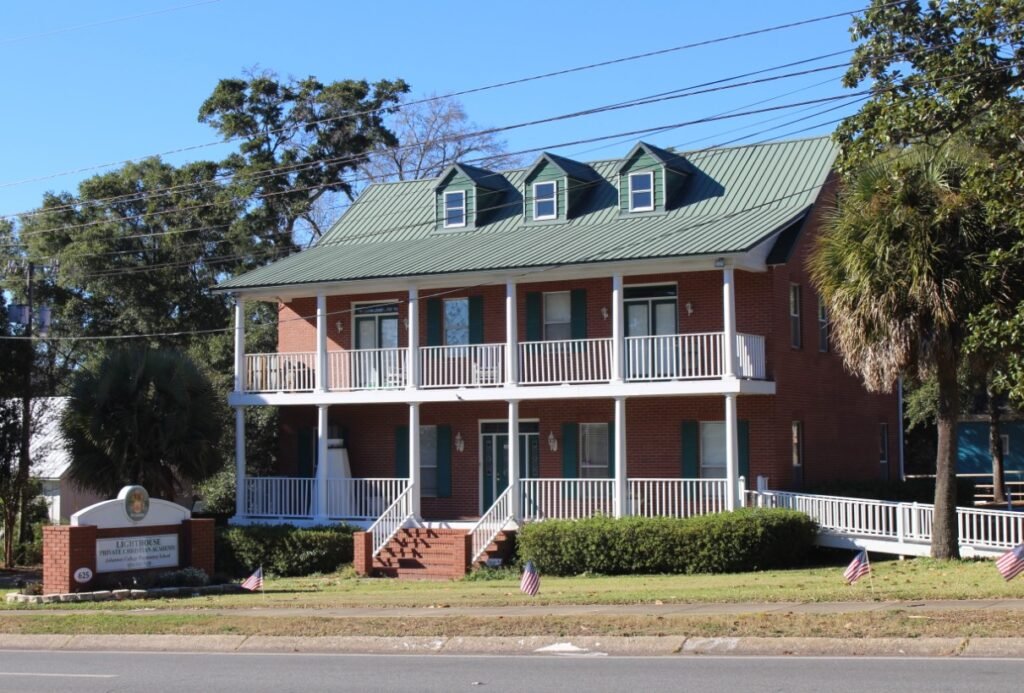Florida’s private colleges and universities are facing criticism and protests from LGBTQ students and activists over a new rule that requires them to use bathrooms and changing facilities that match their sex assigned at birth. The rule, which was approved by the Florida Board of Education on Wednesday, expands a law that was signed by Governor Ron DeSantis in July and applies to government buildings, public schools, prisons and some state colleges.
The law states that buildings must designate such facilities for “exclusive use” by males or females and provide a separate single-occupancy, unisex restroom or changing room. The law also applies to college-run student housing. According to DeSantis, the law is meant to protect the privacy and safety of people who use public facilities. He also said that the law is consistent with the state’s values and culture.

How are the private colleges reacting to the rule?
The rule affects more than 100 private colleges and universities in Florida, which have to submit documents showing compliance with the law by April 1, 2024. Some of these institutions have expressed concern and opposition to the rule, saying that it violates their academic freedom and diversity policies. For example, Rollins College, a liberal arts college in Winter Park, issued a statement saying that it “strongly disagrees” with the rule and that it will “continue to advocate for the rights of all members of our community.”
Other private colleges, such as Stetson University and Eckerd College, have also voiced their support for LGBTQ students and staff and said that they will seek legal advice on how to challenge the rule. Some colleges have already implemented policies that allow transgender and nonbinary people to use facilities that match their gender identity, such as Nova Southeastern University and Barry University.
What are the impacts and implications of the rule?
The rule has sparked outrage and resistance from LGBTQ groups and allies, who say that it is discriminatory, harmful and unconstitutional. They argue that the rule denies transgender and nonbinary people their dignity and identity, exposes them to harassment and violence, and violates their civil rights under federal law. They also point out that there is no evidence that allowing transgender people to use facilities that match their gender identity poses any threat to anyone’s safety or privacy.
Some LGBTQ students and activists have organized protests and rallies against the rule, such as a demonstration outside the Florida Board of Education meeting on Wednesday. They have also launched online petitions and campaigns to pressure the private colleges to defy the rule and protect their LGBTQ community members. They have also called for a boycott of Florida as a tourist destination and a place to study.
The rule also raises questions about the legal authority of the state to impose such a restriction on private institutions, which are not funded by public money. Some legal experts have said that the rule may violate the First Amendment rights of private colleges to set their own policies and standards. They have also said that the rule may conflict with federal laws that prohibit discrimination on the basis of sex or gender identity in education, such as Title IX.
What is the future of the rule and the LGBTQ rights in Florida?
The rule is not yet final, as it still needs to be approved by the Florida Board of Governors, which oversees the state universities. The board is expected to vote on the rule next month. If approved, the rule will affect more than 300,000 students and staff at 12 state universities, including University of Florida, Florida State University and University of Central Florida.
The rule is also likely to face legal challenges from LGBTQ groups and private colleges, who may sue the state for violating their constitutional rights. The outcome of these lawsuits may depend on how the courts interpret the federal laws and precedents on LGBTQ rights, which are still evolving and inconsistent across different jurisdictions.
The rule is part of a broader trend of anti-LGBTQ legislation in Florida, which has been pushed by DeSantis and his Republican allies in recent months. In May, DeSantis signed several bills that restrict LGBTQ lives and spaces, such as banning transgender girls from participating in school sports, prohibiting gender-affirming treatments for minors, limiting drag shows, and allowing schools to regulate which pronouns can be used. These bills have also faced criticism and lawsuits from LGBTQ advocates.
